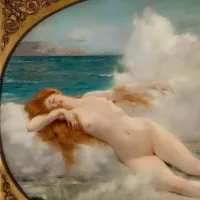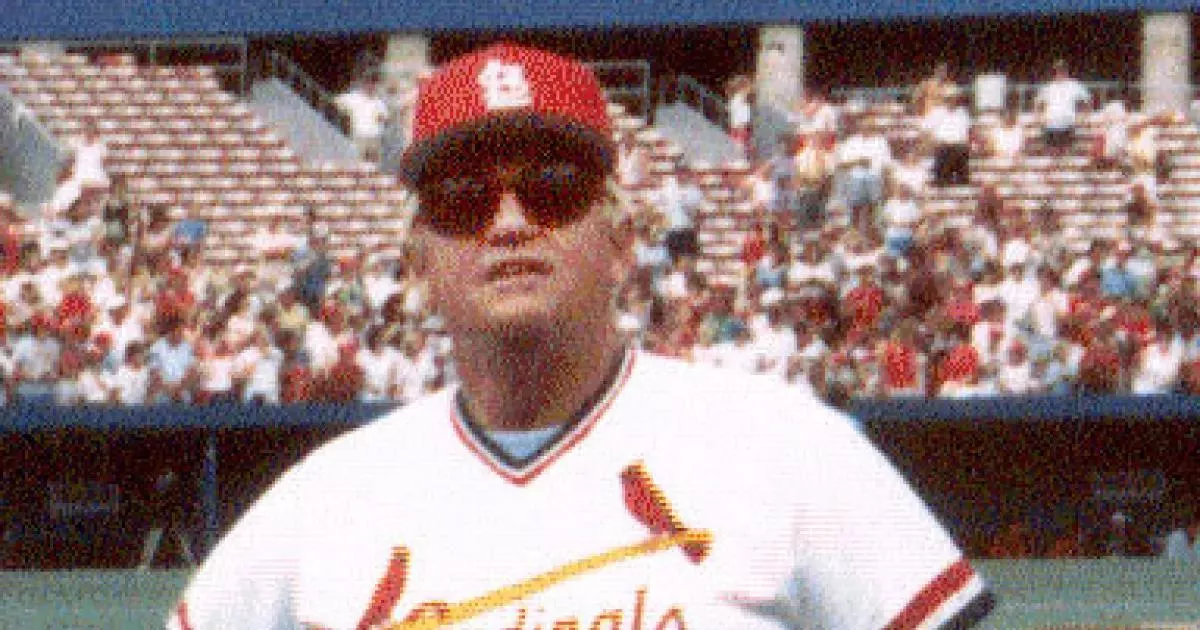November 9, 1931: Birth of Whitey Herzog
Dorrel Norman Elvert "Whitey" Herzog was born on November 9, 1931.
1949: Playing for the McAlester Rockets
Whitey Herzog played for the McAlester Rockets in the Sooner State League in 1949.
1950: Playing for the McAlester Rockets
Whitey Herzog played for the McAlester Rockets in the Sooner State League in 1950.
1953: Herzog Marries High School Sweetheart
In 1953, Whitey Herzog married his high school sweetheart, Mary Lou Sinn, marking a significant personal milestone.
1953: Military Service and Baseball Management
Whitey Herzog served in the U.S. Army Corps of Engineers in 1953, during which he was stationed at Fort Leonard Wood in Missouri and managed the camp's baseball team.
1954: Therron Herzog's Minor League Baseball Career
Whitey Herzog's older brother, Therron, played a year of minor league baseball in the Cotton States League in 1954.
April 2, 1956: Trade to the Washington Senators
On April 2, 1956, Whitey Herzog was traded from the New York Yankees to the Washington Senators, marking the completion of a trade that had been initiated in February.
1956: MLB Debut
Whitey Herzog made his MLB debut as a player in 1956 with the Washington Senators.
May 15, 1958: Trade to the Kansas City Athletics
Whitey Herzog was sold to the Kansas City Athletics by the Washington Senators on May 15, 1958.
1961: Trade to the Baltimore Orioles
The Athletics traded Whitey Herzog and Russ Snyder to the Baltimore Orioles in 1961, in exchange for Wayne Causey, Jim Archer, Bob Boyd, Clint Courtney, and Al Pilarcik.
1962: Trade to the Detroit Tigers
In 1962, the Orioles traded Whitey Herzog and Gus Triandos to the Detroit Tigers for Dick Brown.
1963: Retirement from Playing
Whitey Herzog retired from playing baseball after the 1963 season with the Detroit Tigers.
1963: End of Playing Career
Whitey Herzog's playing career ended in 1963, after which he transitioned to various roles within Major League Baseball.
1964: Scouting for the Athletics
Whitey Herzog rejoined the Athletics as a scout in 1964.
1965: Coaching for the Athletics
Whitey Herzog became a coach for the Athletics in 1965.
1966: Third-Base Coach for the New York Mets
Whitey Herzog joined the New York Mets as their third-base coach in 1966.
1967: Director of Player Development for the New York Mets
Whitey Herzog became the New York Mets' Director of Player Development in 1967.
1969: Success as Director of Player Development
As the New York Mets' director of player development, Whitey Herzog helped the team produce talented players, some of whom contributed to their 1969 World Series victory.
1969: New York Mets World Series Victory
In 1969, the New York Mets won the World Series with Whitey Herzog contributing as a scout and farm system director.
November 2, 1972: First Managerial Position with the Texas Rangers
Whitey Herzog signed a contract to manage the Texas Rangers on November 2, 1972, marking his first managerial role in MLB.
1972: Overlooked for Mets' Manager Position
Whitey Herzog was a candidate for the New York Mets' manager position in 1972 but was passed over for Yogi Berra.
1973: Continued Success as Director of Player Development
Under Whitey Herzog's leadership as Director of Player Development, the New York Mets continued to produce young talent, some of whom contributed to their 1973 World Series team.
1973: Firing from Texas Rangers
Whitey Herzog was fired as the Texas Rangers' manager in 1973 after the team's poor performance.
June 27, 1974: Interim Manager for the California Angels
Whitey Herzog became the interim manager for the California Angels on June 27, 1974, following the firing of Bobby Winkles and before Dick Williams took over.
July 24, 1975: Herzog Takes the Reins of the Kansas City Royals
On July 24, 1975, Whitey Herzog stepped in as manager for the Kansas City Royals, replacing Jack McKeon.
1976: Royals' First Taste of ALCS Heartbreak
In 1976, Herzog guided the Royals to their first American League West title, but they faced a bitter defeat against the New York Yankees in the ALCS, culminating in a walk-off home run by Chris Chambliss in Game 5.
1976: Kansas City Royals Playoff Run
The Kansas City Royals, managed by Whitey Herzog, reached the playoffs for the first of three consecutive years in 1976.
1977: John Mayberry Benching Sparks Controversy
During the 1977 ALCS, Herzog's decision to bench John Mayberry for Game 5 due to his performance in Game 4 ignited a controversy, further straining Herzog's relationship with ownership and highlighting his demanding managerial style.
1977: Another ALCS Loss, More Frustration for the Royals
The Royals clinched the AL West title again in 1977, only to fall to the Yankees in the ALCS once more. Despite a 3-1 lead in Game 5, they were unable to secure the win and missed out on a World Series berth.
1978: Third Time's Not the Charm for Royals in the ALCS
1978 saw the Royals clinch the AL West title for the third consecutive time, but their ALCS aspirations were crushed yet again by the Yankees. Doug Bird's pitching against Thurman Munson proved costly in Game 3, and a low-scoring Game 4 sealed their fate.
1978: Kansas City Royals Playoff Run
The Kansas City Royals, managed by Whitey Herzog, made it to the playoffs for the third consecutive year in 1978.
1979: Clash with Management Leads to Departure from Royals
Disagreements with general manager Joe Burke and owner Ewing Kauffman over personnel decisions and contract terms ultimately resulted in Herzog's dismissal from the Royals after the 1979 season, marking the end of his tenure with the team.
1979: Frustration Boils Over, Herzog Exits Kansas City
The ongoing tensions between Herzog and Royals management finally reached a breaking point in 1979, resulting in his firing after the season. Herzog publicly voiced his criticism of general manager Joe Burke for not taking action sooner to try and motivate the team.
June 8, 1980: Herzog Embarks on a New Chapter with the St. Louis Cardinals
On June 8, 1980, Whitey Herzog was named the new manager of the St. Louis Cardinals, taking over from Ken Boyer. Upon his arrival, he made a strong statement about instilling a hustling mentality within the team.
June 9, 1980: Herzog Returns to Managing, Leads Cardinals to Success
On June 9, 1980, Herzog resumed his role as manager of the Cardinals, after a brief stint as general manager. He continued to lead the team with his distinct managerial style, contributing to their success in the 1980s.
1980: Whitey Herzog Hired to Manage St. Louis Cardinals
Gussie Busch hired Whitey Herzog to manage the St. Louis Cardinals in 1980.
1980: Codell Herzog Joins Whitey's First Cardinals Lineup
In 1980, Codell Herzog, Whitey's brother, joined his first Cardinals lineup, creating a unique family connection within the team.
1980: Herzog Takes on Dual Role: Manager and General Manager of the Cardinals
In 1980, Herzog took on the roles of both manager and general manager for the St. Louis Cardinals, showcasing his versatility and expertise in both areas of baseball operations.
1982: World Series Glory for Herzog and the Cardinals
Herzog led the St. Louis Cardinals to their first World Series title in 1982, marking a pivotal triumph in his managerial career.
1982: St. Louis Cardinals World Series Victory
In 1982, Whitey Herzog led the St. Louis Cardinals to a World Series victory over the Milwaukee Brewers.
1982: Herzog's Legacy as a Masterful Baseball Manager
Whitey Herzog's impactful career as a manager, particularly with the St. Louis Cardinals achieving a World Series championship in 1982, cemented his reputation as a brilliant strategist. His emphasis on speed and defense, combined with his ability to assemble winning teams, left a lasting impact on baseball.
1983: Herzog Recognized as Best Manager in Baseball
In 1983, Herzog's managerial prowess was acknowledged through a poll conducted by The New York Times, where MLB players voted him as the best manager in the league, a testament to his leadership and impact on the game.
1985: Cardinals Return to the World Series, Fall Short of Repeat
Herzog's Cardinals clinched the National League pennant and reached the World Series again in 1985, showcasing their consistent competitiveness under his leadership, though they were unable to secure another championship.
1985: Herzog's Unique Offensive Philosophy
In 1985, Herzog's offensive approach with the Cardinals, blending patient hitters with high on-base percentages and speedy, less patient players, garnered attention. This strategy, combining players like Vince Coleman and Willie McGee, showcased his adaptability and strategic thinking.
1985: St. Louis Cardinals World Series Loss
In 1985, Whitey Herzog and the St. Louis Cardinals lost the World Series.
1986: Herzog's Aspiration for National League Presidency
In 1986, Whitey Herzog expressed interest in the position of National League President, highlighting his ambition to contribute to the game at a higher level. However, the role was ultimately filled by A. Bartlett Giamatti.
1987: Third World Series Appearance for Herzog's Cardinals
In 1987, Herzog's Cardinals made their third World Series appearance, solidifying his legacy as a successful manager who consistently brought his team to the pinnacle of the sport.
1987: St. Louis Cardinals World Series Loss
Whitey Herzog and the St. Louis Cardinals lost the World Series again in 1987.
1989: A Humorous Exchange with Marv Albert
In 1989, Herzog was involved in a lighthearted exchange with sportscaster Marv Albert during a televised interview on NBC. Following Giamatti's appointment as Commissioner of baseball, Albert jokingly suggested Herzog might be interested in the Yale University president position, to which Herzog responded with amusement.
1990: Herzog's Final Act: A Farewell to the Cardinals
In 1990, Whitey Herzog concluded his managerial career after stepping down as the St. Louis Cardinals' manager on July 6th. He left with a record of 822 wins and 728 losses during his Cardinals tenure, concluding a successful chapter with the team.
1993: Herzog Takes the Helm as California Angels General Manager
Whitey Herzog's career path led him to become the general manager of the California Angels in 1993, taking on a new challenge in a different organization.
1993: Herzog's Tenure as Angels GM: A Period of Rebuilding
Whitey Herzog's time as the California Angels general manager, from 1993 to 1994, was marked by challenges as the team went through a rebuilding phase, achieving a record of 118 wins and 159 losses.
1994: Players' Strike Cuts Short Herzog's Angels Tenure
The 1994 players' strike brought a premature end to Herzog's plans for the California Angels, as the postseason was canceled. This event disrupted his efforts to reshape the team.
1996: Herzog and Leyland Decline Red Sox Managerial Offers
In 1996, Whitey Herzog, alongside Jim Leyland, was considered for the manager position with the Boston Red Sox. Both ultimately declined the offers, leading the Red Sox to appoint Jimy Williams instead.
2003: Herzog's Grandson Embarks on a Minor League Career
Whitey Herzog's grandson, John Urick, began his journey as a minor league baseball player in 2003, carrying on the family's baseball legacy. Urick played until 2010 under managers Garry Templeton and Hal Lanier, both of whom had ties to Herzog's Cardinals era.
December 7, 2009: Herzog's Induction into the Baseball Hall of Fame
On December 7, 2009, Whitey Herzog received one of the highest honors in baseball as he was elected to the Baseball Hall of Fame by the Veterans' Committee. This recognition solidified his legacy as a baseball legend, and the Cardinals subsequently retired his number 24 in his honor.
February 20, 2010: Herzog's Brother, Codell, Passes Away
On February 20, 2010, Whitey Herzog's younger brother, Codell ("Butz"), passed away at the age of 76. Notably, Codell was part of Whitey's first Cardinals lineup in 1980, adding a personal connection to his managerial journey.
July 25, 2010: Baseball Hall of Fame Induction
Whitey Herzog was inducted into the Baseball Hall of Fame on July 25, 2010.
January 2014: Herzog Honored by the St. Louis Cardinals Hall of Fame Museum
In January 2014, Whitey Herzog was chosen as one of the 22 former players and personnel to be part of the inaugural class inducted into the St. Louis Cardinals Hall of Fame Museum. This recognition underscored his significant contributions to the Cardinals organization.
August 16, 2014: St. Louis Cardinals Hall of Fame Museum Induction
On August 16, 2014, Whitey Herzog was inducted into the St. Louis Cardinals Hall of Fame Museum.
April 15, 2024: Death of Whitey Herzog
Whitey Herzog passed away on April 15, 2024.
Mentioned in this timeline
California is a U S state on the Pacific Coast...
The National Broadcasting Company NBC is a major American commercial...

Chicago is the most populous city in Illinois and the...

Detroit Michigan's most populous city sits on the Detroit River...
Texas the second-largest US state by area and population is...
The Detroit Tigers are a professional baseball team based in...
Trending

34 seconds ago Medvedev to clash with Auger-Aliassime in Dubai semifinals at Duty Free Tennis.

50 seconds ago Friday's Weather: Snow Returns After Brief Mildness, Lighter Winds Expected, End of Workweek.

1 minute ago Lindsay Lohan reflects on troubled teen years and rebuilding her life in Dubai.
1 hour ago Ameren Prices $400M Senior Notes, $900M Bonds for Grid Investment, Reshaping Debt
2 hours ago Pokemon Celebrates 30 Years: A Cultural Phenomenon with Multimillion-Dollar Cards

2 hours ago Daylight Saving Time 2026: Prepare to set your clocks forward and lose sleep.
Popular

Jesse Jackson is an American civil rights activist politician and...

Barack Obama the th U S President - was the...

Susan Rice is an American diplomat and public official prominent...

XXXTentacion born Jahseh Dwayne Ricardo Onfroy was a controversial yet...

Michael Joseph Jackson the King of Pop was a highly...

Kashyap Pramod Patel is an American lawyer who became the...
